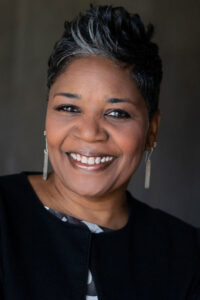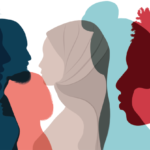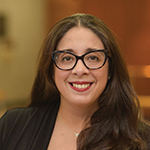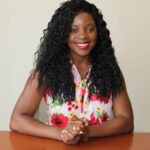WASHINGTON, D.C.—When she was a little girl, Dwinita Mosby Tyler, PhD, told her parents she wanted to be a ballerina.

Dr. Mosby Tyler
It wasn’t something they expected their 5-year-old, who is Black, to say, recalled Dr. Mosby Tyler, the founder of The Equity Project and a prominent speaker and trainer on diversity, equity and inclusion (DEI), in her keynote address, The Transformative Power of Allyship in Rheumatology, on Nov. 15 at ACR Convergence 2024.
She said her mother took her to a ballet school, where they were told, “We don’t accept Negroes here.” Without a word, her mother took her to another ballet school, and another. All five they visited that day said the same thing.
“Why don’t they want me?” the young girl asked.
“Sweetheart, they don’t know how excellent you are yet,” said her mother.
The next day, a white lady in a leotard, tights and a tutu came to her segregated school. “My name is Miss Ann, and I’m going to be your ballet teacher,” she said.
Dr. Tyler said this was probably her introduction to the notion of equity.
Change Is Personal
“Equity can sometimes show up in unsuspecting packages,” she said. “Don’t let anybody convince you that it can’t be you.”
In her talk, Dr. Mosby Tyler drilled down on what diversity, equity and inclusion really mean and offered guidance and motivation on how to do your part. She challenged the common perceptions that some communities have little interest in DEI and the idea—and frequent pitfall—that change must come in a dramatic, sweeping fashion.
The ballet teacher visiting her school showed that “equity work takes bravery.” Miss Ann wasn’t even supposed to be in that neighborhood, let alone challenging an entire system. “She knew that little girls that looked like me couldn’t go to the ballet schools, so she brought the ballet school to us,” she said. And it showed that DEI must come from the heart.
“Equity work, as I have seen it, takes love and caring,” Dr. Mosby Tyler said. “And if you don’t have that in you, you’re not going to do it.”
It also comes in small steps that might not even be noticeable at the time, she said, telling audience members they may be engaging in “Miss Ann work” unwittingly.
“You probably don’t even know it yet,” she said. “But when you do know it, what you’re going to find out is that there is a moment, something that you did or said, that actually changed the trajectory of somebody’s entire life.”



